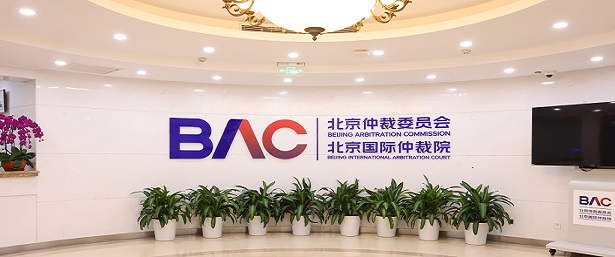
Publish time: Thu Aug 10 11:02:42 CST 2023

Procedures in event of arbitration party’s death
The death of an arbitration party complicates proceedings. While the Supreme People’s Court’s interpretation on the Arbitration Law provides guidance on the binding nature of arbitration agreements in cases of merging or divisions of a party, the complexity of specific circumstances and varying levels of recognition among involved parties make handling these issues controversial.
In practice, the necessity to navigate arbitration procedures in such circumstances occurs both before and during arbitral proceedings. It is noteworthy that addressing the issue differs at various stages.
BEFORE PROCEEDINGS
If a natural person dies before proceedings commence, his or her successors will mostly file the case with the contract containing the arbitration clause and the death certificate.
During the process of case acceptance review, in addition to reviewing relevant material, arbitration institutions such as the Beijing Arbitration Commission or Beijing International Arbitration Centre are usually required to ascertain whether the applicant is an eligible successor.
The arbitration institution will pay particular attention to whether there are any successors other than the applicant to the creditor’s right involved in the case.
If there are any other successors (including testamentary successors and legal successors), they may become disqualified after the award is rendered, leading to subsequent controversy.
In terms of evidentiary materials, arbitration institutions provide flexibility on a case-by-case basis.
For instance, in an arbitration case, natural person A, as party A, enters into an attorney agreement with a law firm, as party B, to deal with administrative litigation case.
Party A and party B have a dispute over performance of a contract. Natural person party A dies and natural person party C applies for arbitration on his behalf. However, natural person party C had difficulty submitting material proving to be sole successor of party A.
But, during case acceptance review, the arbitration institution noticed the paternity relationship between parties A and C (and B is the sole eligible successor of party A) had been clarified in the judgment of a previous administrative case. Therefore, the arbitration institution accepted the arbitration case filed by party C.
DURING PROCEEDINGS
If death occurs in the course of arbitral proceedings – namely, after commencement – the key issue is how the proceedings should continue being conducted.
Article 150 of the Civil Procedure Law provides: “An action shall be suspended in any of the following circumstances: (1) one of the parties dies and it is necessary to wait for his successor to state whether he wishes to participate in the action; … Proceedings shall be resumed after the cause of suspension has been eliminated.”
Article 55 of the Opinions of the Supreme People’s Court on Some Issues Concerning the Application of the Civil Procedure Law provides: “Where, in an action, a party dies and it is necessary to wait for his or her successors to indicate whether they will participate in the action, the people’s court shall issue a ruling to suspend the action. The people’s court shall notify the successors to participate in the action as the parties to the case, and the litigation conduct of the deceased shall bind the successors that participate in the action.”
In arbitration activities, the matter shall be handled with reference to the preceding provisions. But after suspension of the procedure, confirming the eligible successor and resuming the procedure is the more controversial part.
In the event that a deceased is a claimant, to reduce procedural risk, his or her successors may complete the relevant notarisation process during the suspension of arbitral proceedings.
In such a case, first-in-line successors can be clarified and all those eligible successors continually participate in the proceedings. If there is also a dispute in the action for inheritance, the successor shall be determined by the court in the corresponding judgment. The eligible successor determined by this effective judgment shall participate in the proceedings.
In the event that the deceased is a respondent, there is a risk that his or her successors may refuse to co-operate in the issuance of relevant inheritance certificates, and refuse to participate in the arbitral proceedings. They may also raise objections to the arbitral jurisdiction or arbitral proceedings, and even apply for ruling invalidity of the arbitration agreement.
Under such circumstances, the claimant shall actively respond and strive to create their most favourable outcome, so as to avoid unnecessary procedural risk and ensure subsequent progress of the arbitral proceedings.
PRUDENT ARBITRATION
The author has also noticed that in the event a natural person no longer has the civil capacity as a claimant, the court usually adopts a positive attitude when determining validity of the arbitral agreement on his or her successors.
The arbitral tribunal should also be more prudent during the trial to avoid involving inheritance relationships that exceed the scope of arbitration. Instead, the tribunal should focus on the commercial dispute independently, ensuring the successors will assume relevant rights and obligations within the scope of succession, and avoid the risk of exceeding arbitral authority.
About the Author
Zhao Hanqing is a case manager at Beijing Arbitration Commission/ Beijing International Arbitration Centre (BAC/BIAC)